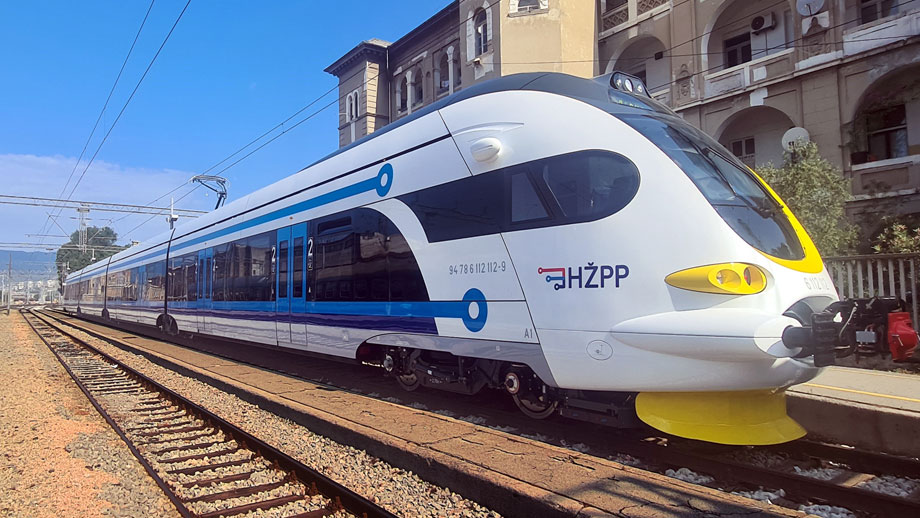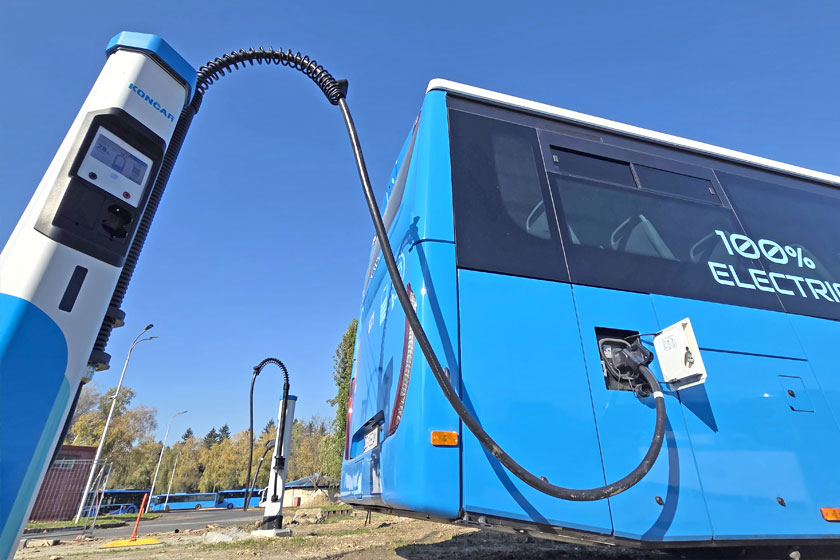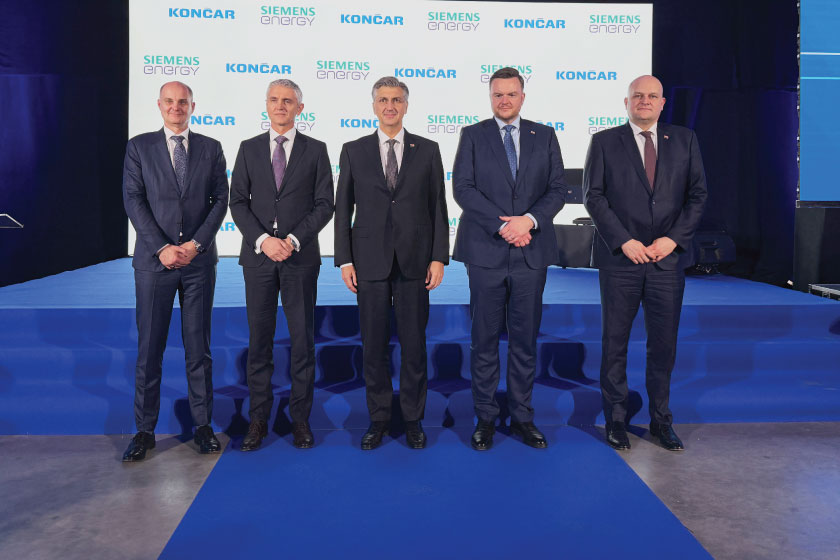New electric train for urban-suburban traffic commissioned
A new electric train was commissioned in Rijeka today for the city’s urban-suburban passenger transport.
The train was delivered to the company HŽ Passenger Transport by KONČAR – Electric Vehicles Inc. as part of a contract signed in April 2020 for the manufacturing of 12 electric trains (six for urban-suburban traffic and six for regional traffic). The contract is an addendum to the 2014 Sale and Purchase Agreement for 32 electric trains, regulating phase two of the agreement.

HŽ Passenger Transport financed the manufacturing of 11 new trains with a loan from the European rolling stock financing company EUROFIMA and one with a loan from the International Bank for Reconstruction and Development (IBRD).
The first regular run was attended by Oleg Butković, Minister of the Sea, Transport and Infrastructure, Zlatko Komadina, County Prefect of Primorje-Gorski Kotar County, Goran Palčevski, Deputy Mayor of Rijeka, Tomislav Klarić, Mayor of Bakar, Vedran Kinkela, Municipal Prefect of Matulji, Željko Ukić, President of the Management Board of HŽ Passenger Transport and Josip Ninić, President of the Management Board of KONČAR – Electric Vehicles Inc.
The first of twelve new electric trains was handed over on 15 July 2021, followed by monthly deliveries of the remaining trains – one every month in 2021 and 2022.
With the train commissioned today HŽ Passenger Transport now operates with 29 new low-floor trains manufactured by KONČAR.
New electric trains are low-floor multiple units comprised of four sections, capable of reaching a maximum speed of 160 km/h and equipped with wheelchair-accessible boarding and deboarding platforms and a bicycle holding area. The trains are equipped with a modern heating and cooling system and a video-surveillance system. Wireless internet access (WiFi) will be provided to the passengers free of charge. In-train station announcements will be available via displays and voice announcements.
The new trains represent an improvement in the quality of transport services, as well as reliability and availability of vehicles, at significantly lower operational costs and with the possibility of increasing train frequency and the number of passengers carried. The new trains also contribute to pollution reduction.



